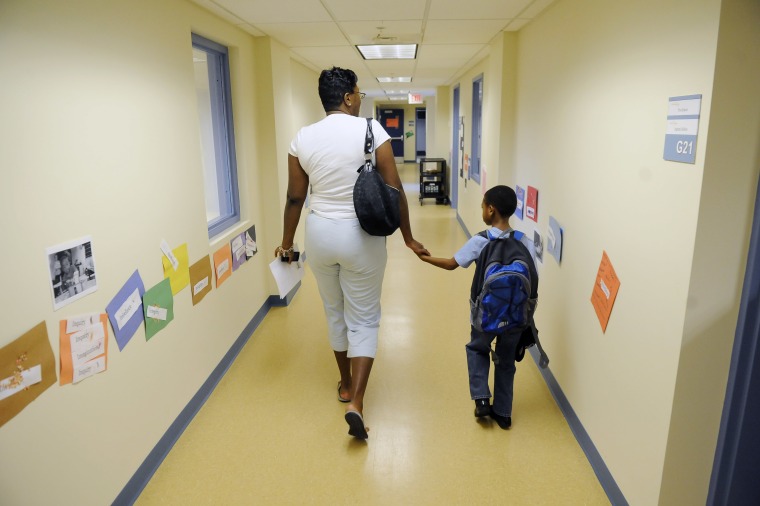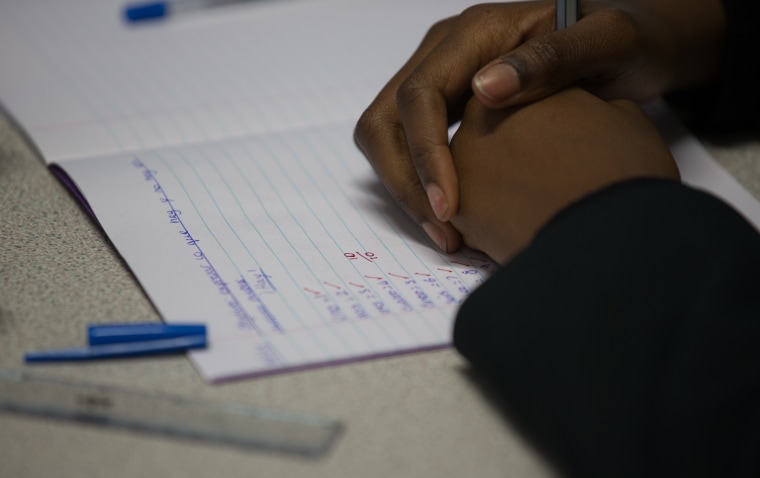You may have missed it, but we are in the smack dab in the middle of a presidential election cycle, and the real countdown started this week with the Iowa Caucus and the New Hampshire Primary. One one side, Hillary Clinton and Bernie Sanders continue to battle for the Democratic nod while a dwindling army of GOP hopefuls all aspire to be next to sit in the oval office.
Our newsfeeds and timelines are flooded daily with the latest gaffes, poll results, and detailed plans from each of the candidates who intend to lead America for at least the next four years. But one very important issue has been strikingly missing from the discourse up until now: education. Strangely enough, the only issue that seems to be of lower concern for the presidential candidates than law enforcement abuses and the #blacklivesmatter movement is a conversation on addressing the gaps in our education system.
I won’t speculate as to why education is low priority in the current discussion, but the facts are clear: the waning interest with addressing the challenges of K-12 education in America is harmful for communities of color. Black and Latino students are the ones hurt most by a system of public schools that aren’t working and that has a serious ripple effect on their high school graduation, college readiness, and their ability to find work in mainstream America. The marginalizing impacts of that systemic failure is evident for communities of color.
RELATED: Education Is Not Great Equalizer for Black Americans
While the past decade has seen an overall improvement in academic achievement among Black students, it would be a mistake to rest now because the passage of the Every Student Succeeds Act Congress has given states the freedom to hold themselves accountable for results at a time when black student performance levels still remain critically low.
As outlined in a recent study commissioned by the US Chamber of Commerce in conjunction with the NAACP, there is a “mismatch” between graduation rates and college readiness for black students and many black communities continue to suffer from not having access to quality education options.
Political seasons bring the customary rhetoric about fixing our country and putting us on the path for a stronger future, but feel good promises of a better tomorrow are disingenuous if we continue to be a nation with two tiers of education. It’s been largely absent from any of our current conversations, but as voters continue to whittle down the field of serious candidates, it is imperative that education move closer to center stage in the issues that candidates are forced to discuss.
Nationwide test scores among black students predict that many of them are not on track for successful lives.. The 2015 National Assessment of Educational Progress revealed that less than 20% of Black fourth graders managed to reach a proficient score in reading and math. As students aged, it became worse with the numbers dropping even lower for eighth graders. Compare that nationally with the numbers being over 35% in both subjects at the fourth and eighth grade levels for other students. These numbers have not been this alarmingly abysmal for black students since the early 90’s.

In every election the thing that will matter for black people, and other populations aspiring to advance, the key issues will be jobs, housing, and quality of life. Those are all things connected to the preparation we give our children through education.
While candidates for America’s highest office find it convenient to side step what is arguably the most important issue, possibly because it doesn’t lend itself to easy fixes or sound bytes, there is no doubt we need to improve in education. We need a system that values equality, opportunity, choice, and accountability. There are a host of other issues that need to be tackled in order to properly redirect these trends but none of them will matter until education is given the proper priority level on our nation’s agenda.
RELATED: Blacks, Latinos Face "Crisis" On Wealth, Jobs: New Report
Put plainly, until we begin to treat it as the crisis it is, any hopes of closing this gap will be further delayed. Whoever is left seeking votes after Iowa—particularly votes from the Black community—must immediately begin to address their plans for how to make America’s failing school system equitable and high performing for all students. It is time that we begin pressing them with tough questions on education and demanding specific plans of action. This is simply too important a conversation to remain quiet about or continue to remain buried beneath the same issues that have dominated the electoral discourse so far.
The future of our people depends on it.
Chris Stewart is Director of Outreach and External Affairs Education Post, a non-partisan communications organization dedicated to building support for student-focused improvements in public education from preschool to high school graduation.
